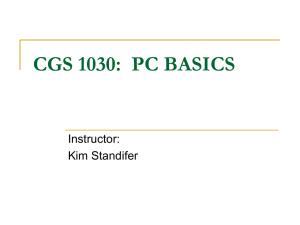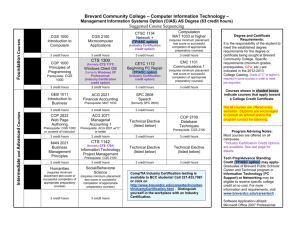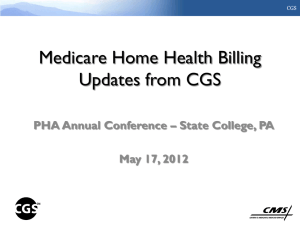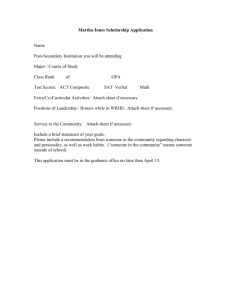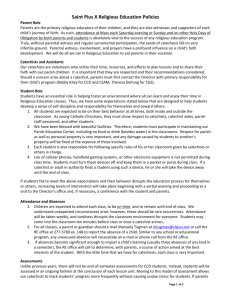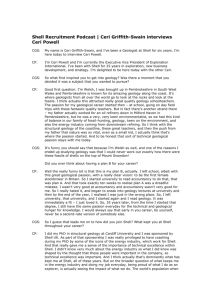Council Meeting Minutes October 2012
advertisement
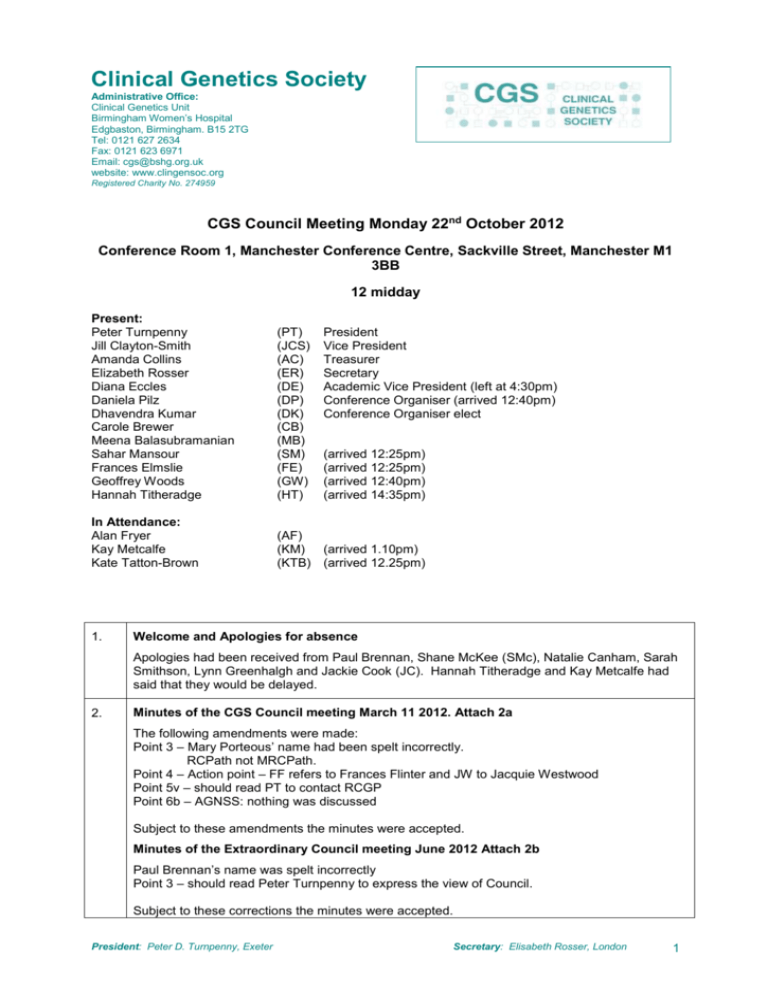
Clinical Genetics Society Administrative Office: Clinical Genetics Unit Birmingham Women’s Hospital Edgbaston, Birmingham. B15 2TG Tel: 0121 627 2634 Fax: 0121 623 6971 Email: cgs@bshg.org.uk website: www.clingensoc.org Registered Charity No. 274959 CGS Council Meeting Monday 22nd October 2012 Conference Room 1, Manchester Conference Centre, Sackville Street, Manchester M1 3BB 12 midday Present: Peter Turnpenny Jill Clayton-Smith Amanda Collins Elizabeth Rosser Diana Eccles Daniela Pilz Dhavendra Kumar Carole Brewer Meena Balasubramanian Sahar Mansour Frances Elmslie Geoffrey Woods Hannah Titheradge (PT) (JCS) (AC) (ER) (DE) (DP) (DK) (CB) (MB) (SM) (FE) (GW) (HT) In Attendance: Alan Fryer Kay Metcalfe Kate Tatton-Brown (AF) (KM) (arrived 1.10pm) (KTB) (arrived 12.25pm) 1. President Vice President Treasurer Secretary Academic Vice President (left at 4:30pm) Conference Organiser (arrived 12:40pm) Conference Organiser elect (arrived 12:25pm) (arrived 12:25pm) (arrived 12:40pm) (arrived 14:35pm) Welcome and Apologies for absence Apologies had been received from Paul Brennan, Shane McKee (SMc), Natalie Canham, Sarah Smithson, Lynn Greenhalgh and Jackie Cook (JC). Hannah Titheradge and Kay Metcalfe had said that they would be delayed. 2. Minutes of the CGS Council meeting March 11 2012. Attach 2a The following amendments were made: Point 3 – Mary Porteous’ name had been spelt incorrectly. RCPath not MRCPath. Point 4 – Action point – FF refers to Frances Flinter and JW to Jacquie Westwood Point 5v – should read PT to contact RCGP Point 6b – AGNSS: nothing was discussed Subject to these amendments the minutes were accepted. Minutes of the Extraordinary Council meeting June 2012 Attach 2b Paul Brennan’s name was spelt incorrectly Point 3 – should read Peter Turnpenny to express the view of Council. Subject to these corrections the minutes were accepted. President: Peter D. Turnpenny, Exeter Secretary: Elisabeth Rosser, London 1 3. Matters arising from the previous minutes not otherwise on agenda Nominations committee Revised document is now on the website 4. New members There have been nine new members since the last meeting. Dr Alan Johnston, a past President of CGS, died in September 2012. Welcome Letter attach 4a The President sent a welcome letter to each recent new member and has had positive feedback on this. Upcoming elections Elections for Council will be held again in the New Year. Daniela Pilz, Meena Balasubramanian, Sahar Mansour and Geoffrey Woods are due to demit office. The trainees will organise the vote to replace Meena. Daniela has been replaced by Dhavendra Kumar. Elections will be held for two ordinary members of council to replace SM and GW. Elections for trainee representatives are organised via the trainee e-mail contact system. Expressions of interest will be requested and an election held if more than one person expresses interest. Previously this has been done by one of the trainees but it was suggested that both be involved in future. Honorary members There is one honorary member of CGS at present – Professor Malcolm Fergusson-Smith. The proposal that Carter Lecturers become Honorary Members of CGS was accepted in principal. However, as Honorary Members cannot vote it is important to ensure that an Ordinary Member does not lose their voting rights, should they deliver the Carter Lecture. Most Carter Lecturers are not members of CGS, so this will only be a potential problem on rare occasions. Action: ER and PT to contact past Carter Lecturers to invite them to become Honorary Members ER to state at AGM that Senior and Honorary Members cannot vote at the AGM. PT to ask for nominations for Honorary Members in the his email bulletin Medical student members – the proposal to accept medical student members had been agreed by Council but has not been activated as they would automatically become BSHG Members and this has not been discussed within BSHG. It was suggested that medical students and junior doctors who have not yet begun training in Clinical Genetics could become Associates of CGS which would avoid the need for BSHG membership. Action: PT to discuss at BSHG Council PT to discuss at AGM ER/PT to amend Constitution 5. President’s Report a. Draft Constitution Attach 5a Amendments to submitted draft: section 23 ‘to be being’ should be changed to ‘to being’ A paragraph is needed on student and junior doctor Associate Members, reflecting the fact that they are not members of BSHG. Action: PT and ER to draft a paragraph on medical student/junior members ER to send a final draft out at least three weeks prior to the AGM and to ask for comments before the meeting. President: Peter D. Turnpenny, Exeter Secretary: Elisabeth Rosser, London 2 b. Rare Diseases 350 contributions to the Consultation on Rare Diseases were received. There is clearly an overlap with National Specialist Commissioning. The CGS response stressed the need for a profile for rare diseases at national/local levels which is separate from the need for specialised centres. There is the hope that services would be more equitable than at present. Clinical Reference Groups (CRGs) are likely to be key in decision making. c. Journal of Medical Genetics – CPD project This is progressing well. As the questions will be self-assessed, a multiple choice question format is best. It would be recorded under personal CPD. An editorial panel has been identified. Emma Wakeling, Alex Murray, Lily Islam, Wendy Jones, Richard Scott, Daniela Pilz and Shirley Hodgson have all expressed interest in being on this. We are waiting to hear final details back from the JMG Action: PT to contact Allison Lang at JMG d. Map of Medicine (MoM) Enthusiasm for the MoM varies between individuals and departments. At present MoM is not resourced. There has been some discussion about whether a separate domain would be needed for Genetics, which is preferred by Clinical Geneticists but resisted by MoM. There was some discussion which concluded that MoM could have huge potential, however, at present only around 2% of GPs use it and without a separate domain it is probably of limited usefulness. At present there is no obvious alternative and it was felt that individual departmental websites are probably the best resource. In conclusion, it was decided that we need to keep abreast of GP and user needs but there is not enough evidence to choose the delivery system yet. Any system could be extremely useful with respect to referral guidelines, etc but will need to be appropriately resourced. In the meantime we should encourage more participation in MoM through their ‘Fellows’ (advisers) board. Action: PT to organise another telephone discussion with MoM, and encourage new ‘Fellows’ through circulating the membership AC to raise at CRG Meeting e. RCPCH / RCOG More colleges are now integrating Genetics into their core training. KTB attended Council as the RCPCH Rep. There is progress in involvement with RCPCH Exam Board. Informal links have been made with the RCOG but formal discussions have not yet begun. Fetal Medicine Trainees have Genetics in their curriculum but there is no consistent practice as to how this is delivered. The next Paediatric Annual Conference is in Glasgow in May 2013. There will be a joint Genetics-Dermatology session. As yet there have been few submissions from geneticists and it was agreed that we should encourage trainees to submit to this – they could also apply for CGS funding to attend the conference. It was agreed that the profile of genetics at their meeting is improving but could still be raised further. Action: KTB and MB to draw up and circulate a call for papers f. ACCEA The process was very delayed this year but is now progressing. Citations have been submitted for all applicants via CGS. There were two applications for Gold, three for Silver, and nine for Bronze. There was some discussion about how feedback could best be provided when applicants have not completed the forms to their best advantage or are unsuccessful. It was decided that it would be most effective to offer feedback to unsuccessful applicants, if they wish. President: Peter D. Turnpenny, Exeter Secretary: Elisabeth Rosser, London 3 g. Carter Lecture Prof Andrew Hattersley has accepted the invitation to deliver the Carter Lecturer for 2013. h. Human Variome Project - Attach 5h This is a well-funded project but is still in the early stages. It will be important for future developments and both individuals and departments can sign up for it though the exact nature of the involvement required is not clear. The Human Phenome Project is also starting up and will be relevant to the speciality in future. Action: PT to promote participation in his next e-bulletin i. Harnessing IT for CGS – Attach 5i A report by Shane Mckee (SMc) had been submitted and was discussed. The options suggested were felt not to be mutually exclusive – some would be relevant for professionals, others for patients and the public. It was also noted that some suggestions overlapped with the work of the NGEC. It was agreed that utilising social media gave us potential to raise our profile. In general feedback was very positive and it was felt to be a useful document. St George’s are developing an App to aid communication with patients. Action: Anyone interested in being involved to talk to SMc PT to approach NGEC to discuss overlap/their involvement SMc Start Blog and Twitter 6. Specialised Commissioning Clinical Reference Groups – Attach 6 and Specialised Commissioning Summit – 24.09.12 A report had been submitted. PT had attended the Specialist Commissioning Summit in September. The outcome of this suggested that clinicians are to be very involved in the process. It was agreed that the ongoing discussions and input into the Dashboard have been helpful. It was noted that the local area teams do not match the geography of the Regional Genetics Services. 7. Lead Clinicians – Attach 7 a. Dashboards / data collection It was agreed that the engagement of the Lead Clinician Group in commissioning issues is more able to address issues than Council. There is still a lack of consistency in interpreting and counting data, but it was agreed that the difficulties in collecting data may be a lever to change processes and resources within individual departments. b. Future meeting / workshop It was agreed that the momentum generated by the meeting in February should not be lost and that another meeting may be necessary next year to take account of developments in commissioning and new technologies. 8. Academic Vice-President There was some discussion about the role and how it has already evolved form the original description. The present Academic Vice President has not been invited to SAC Meetings. It was agreed that academic input is crucial to Clinical Genetics as a specialty. a. ACFs There is no one source of reliable detail about their numbers or whereabouts. The workshop that had been held was felt to be useful by the ACFs and it may be sensible to hold another one at President: Peter D. Turnpenny, Exeter Secretary: Elisabeth Rosser, London 4 the BSHG Meeting next year. There is scope for various developments including an essay prize and engaging with potential applicants for ACFs. There is also a role for finding independent mentors for individuals when necessary. Medical Student and Junior Doctor Competitions The title for the medical student essay competition has been decided. Each medical school will be asked to display a poster advertising the competition. Southampton Medical School had advised that there may be an overwhelming number of entrants to a medical student competition. It was decided that all applications should be sent to ER and if the numbers are too large to be judged by the panel, then they would be screened by local genetics departments with one entry per medical school being forwarded to the panel. Action: DE to e-mail Sarah Smithson about SAC Meetings DE to contact Jackie Cook and Hannah Titheradge about collecting data on ACF’s ER and Adam Shaw to update role of Vice President on website AC and DE to contact medical schools 9. Conference Report – Attach 9 a. Strategic integration with BHGC Most comments about the 2012 Spring Meeting were positive and there was general support for the Joint Meeting with the Dutch. The CGS Conference for 2013 will have a theme of renal disease. There was some discussion about the CGS conference scientific committee. It has now been agreed that the tenure will be five years for consultants, three members have been on the committee for more than five years, two will be replaced this year and one next year to maintain continuity. Concerning the International Scholars, the meeting is busy and will probably not accommodate spoken presentations from both. It was agreed that they would both be introduced to the meeting by the President, both would be considered for spoken presentations but may be asked to present a poster. Action: ER to call for nominations for the CGS scientific committee as part of the election process for CGS Council DP to amend programme for spring meeting to accommodate introduction of International Scholars Allowing stalls from charities and research organisations at the conference was discussed. It was felt that space and time constraints in the one day meeting meant that the meeting is not conducive for stalls or exhibitions though we can offer fliers in the conference pack. b. Nomination to BHGC Scientific Programme Committee The BHGC committee is informed of the CGS Spring Meeting programme to avoid overlap. Dr Julia Rankin is stepping down from the BHGC Scientific Committee and she was thanked for her hard work on this. There was some discussion as to how to achieve the best representation CGS on this group. It was decided that it would be best to have some overlap between the CGS and BHGC scientific committees and it was agreed that Mohnish Suri who has just begun a term on the CGS Scientific Programme Committee be asked to represent the CGS on the BHGC Scientific Committee. Action: DP to approach Mohnish Suri PT to write a letter of thanks to Dr Julia Rankin President: Peter D. Turnpenny, Exeter Secretary: Elisabeth Rosser, London 5 10. International a. International Scholarship, 2013 – Attach 10a i, ii, iii, and iv The applications for the CVs of the two winning candidates had been circulated. There were 14 applicants this year and most were of a very high standard. There was some discussion about the criteria for choosing the winners. It was decided that it was probably best not to set strict criteria as people tended to judge the applications in different ways, but usually there were clear winners. Because of the differences in services in different countries and different experiences of the applicants, it was suggested that we consider choosing one Trainee and one established Consultant in future years. Action: ER to ask winners for feedback immediately after their scholarship and one year later. b. Applications for overseas trips Discussed with treasurer report c. Short elective periods for trainees in developing countries The SAC is supportive of this initiative and Dr Meena Bhatt in Bangalore has been approached regarding a pilot project. However, in discussion it became apparent that there may be issues regarding payment of trainees if they are away for four weeks. The Welcome Trust may be able to provide some financial support. Action: PT to continue to continue to work on this. 11. Clinical Governance & Audit a. Clinical Effectiveness – report circulated A report had been submitted. The National Audit is underway and is to be presented at the CGS spring conference. The CRG report states that there is a proposal to audit the genetic counsellor outcome scores next. Many departments had problems with this questionnaire as many patients found it unacceptable. Concern was expressed about using it as the National Audit. It was agreed that it is important for one department to take the lead in an audit and that help form their own audit department is invaluable. Action: ER to feedback to JC to ask the Lead Clinician Group to suggest changing the audit from the genetic counsellor outcome scores, and for one department to take the Lead. b. Records Standards Not discussed further 12. Trainee Issues a. Trainee report Representation process / elections A report had been submitted. The election process had been discussed earlier. It was also discussed whether there could be an SpR area on the website as several trainees have difficulty accessing the Yahoo Group via their work IT systems. There have been some concerns about the frequency of the KBA/SCE exam. It was explained that if the exam was held more frequently the costs would be significantly higher for trainees. President: Peter D. Turnpenny, Exeter Secretary: Elisabeth Rosser, London 6 Action: HT to ask Adam Shaw and SMc about area on website/private SpR Group b. SAC report Clinical Genetics is to pilot a new form of work-based place assessment (WBPA) - the nature and number of assessments is going to change. c. Manpower issues update - Report circulated There is very little data available on SpR numbers. There is likely to be a number of consultant retirements over the next five to ten years. 13. Committee Reports a. JCMG No report was submitted and there was no discussion. b. UKGTN – Report Tabled Managed Clinical Network Innovation Fund New ‘Development’ Group A report was tabled. A new Development Group is being established to look at laboratory expertise. Nothing concrete has been decided regarding Clinical Services. There are still many uncertainties. There was some discussion about the importance of clinical-laboratory liaison which will be crucial for interpretation of results for patients generated by new technologies. c. BSHG No report was submitted and there was no discussion. d. CGG No report was submitted and there was no discussion. e. HGSG Strategic Framework Workshop, Nov 7 No report was submitted and there was no discussion. However, PT (for CGS), and KM and Dr Fiona Lalloo (for the RCP) will be in attendance at the HGSG Workshop on Nov 7. 14. Budget / Finance – Attach 14 Internet banking is now working well. The surplus is decreasing. A Treasurer’s meeting of the constituent groups for BSHG is planned. We AC will aim to clarify what is covered by the payments made to BSHG. The Student Travel Award will be advertised and travel awards for students and junior doctors will be featured in the next BSHG newsletter. 15. National Screening Committee No further discussion. President: Peter D. Turnpenny, Exeter Secretary: Elisabeth Rosser, London 7 16. Website No further discussion. 17. Revalidation update – Attach 17 a, b, c, d The draft template (Attach 17c) received positive feedback. It was felt appropriate that this document should express guidance rather than being proscriptive. It was agreed that it should be circulated to the Lead Clinicians Groups so that every department has the opportunity to input into it. It was felt that it could be helpful to assist clinicians in obtaining time and funding to attend the recommended meetings. Alan was thanked for his continuing hard work on revalidation. Action ER to ask JC to circulate document to Lead Clinicians 18. Chairman’s Remarks and AOB The research excellence framework document was discussed. Individuals cannot be nominated if they are fully employed by a University. There was some debate as to whether individuals who are named in RAE returns can be nominated. It was agreed that this is an important initiative and that we should nominate people. Action: GW to look into who is eligible to be nominated and to disseminate the information. 19. Date / venue next meeting Wednesday 13th March 4pm, Trust Conference Room, Level 2 York House, GOS followed by dinner at 7pm -venue tba. President: Peter D. Turnpenny, Exeter Secretary: Elisabeth Rosser, London 8
